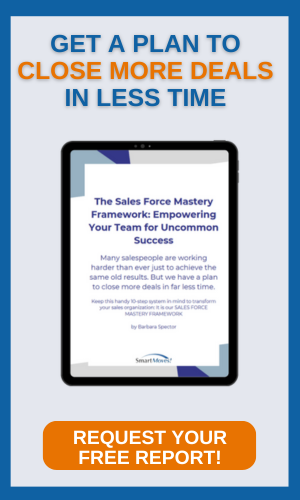
Every company has salespeople that are expected to find new opportunities, schedule new meetings and build the pipeline. Many tech companies have BDR's scheduling the meetings and turning the opportunities over to account executives. Most companies have traditional salespeople who make their own calls, book their own meetings and then follow up accordingly.
One thing that doesn't change regardless of role is Call Reluctance - the condition where salespeople have difficulty getting started, need to pause and/or aren't able to complete the calls they were expected to make. Call Reluctance is a pretty serious and widespread issue so it is worth looking into the science.
Objective Management Group, Inc. (OMG) has data on well over 1,000,000 salespeople who have been evaluated or assessed. The data on Call Reluctance, provided below, shows the effect that 4 Sales DNA findings have on prospecting. Sales DNA is different from the selling skills required to be effective when making those calls. Rather, they either support or sabotage salespeople who are supposed to be making and converting those calls.
- 62% of all Salespeople have Need for Approval (They need to be liked or loved)
- 38% of all Salespeople have Difficulty Recovering from Rejection (They take too long to recover from being rejected)
- 21% of all Salespeople are Unwilling to Prospect (They don't want to prospect)
- 34% of all Salespeople are Perfectionists (They won't start making calls until they believe they can do it perfectly)
You might be wondering how many salespeople have more than one of these weaknesses.
- 71% have at least 1 of those 4
- 29% have at least 2 of those 4
- 13% have at least 3 of those 4
- 1% have all 4
The 14% with 3 or more of those weaknesses are suitable only for farming and account management roles. They will not prospect. Period. Don't ever try to fix them because they can't be fixed.
The challenge is not what to do about call reluctance. The challenge occurs when you are recruiting and there is a new business development component to the role. How do you really know whether the great salesperson you are considering will do the necessary prospecting?
There are options:
1. You can guess. "Since she is such a good salesperson I'm guessing she will hunt."
2. You can hope. "I hope that he finds us a lot of new business."
3. You can ask. "Can you provide numbers that can support, in past roles, how much prospecting for new business you actually did and how effective were you?"
4. You can check references. "Did you ask Mary to prospect for new business and if so, was she effective?"
5. You can assess. "As part of our interviewing process, you will be asked to take an online sales assessment that helps us better understand how well aligned your sales skills are with the role we are hiring for."
There are lots of assessments but most of them measure personality and behavioral styles, not sales capabilities, and most of them are simply not predictive. OMG's Sales Candidate Assessment, has legendary accuracy, is highly predictive, measures 21 Sales-Specific Core Competencies, and is highly customizable for the role.
Most salespeople who fail, do so because they were not able to quickly build a solid, qualified pipeline. This is not to say that salespeople don't fail for other reasons but when salespeople fail early, it's usually because of a lack of quality new meetings. We have empirical evidence of this. When companies hire candidates that OMG did not recommend for the role, 75% of those candidates fail within 6 months.
You may also want to call us directly to discuss your sales challenges. We are at 800-700-6507.





